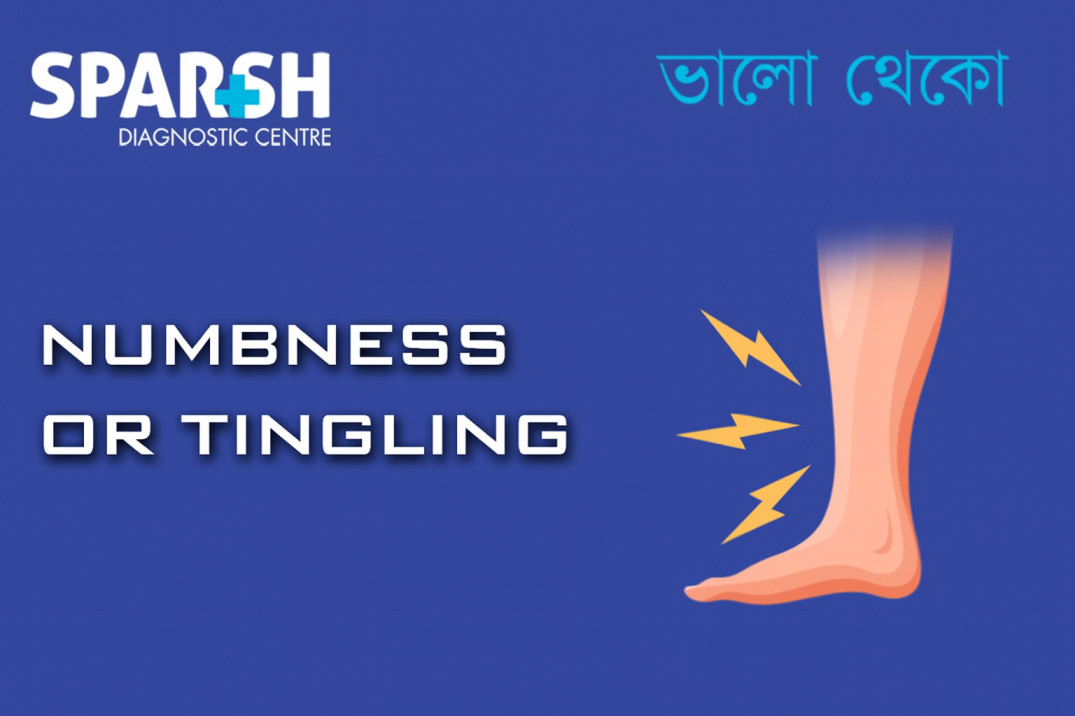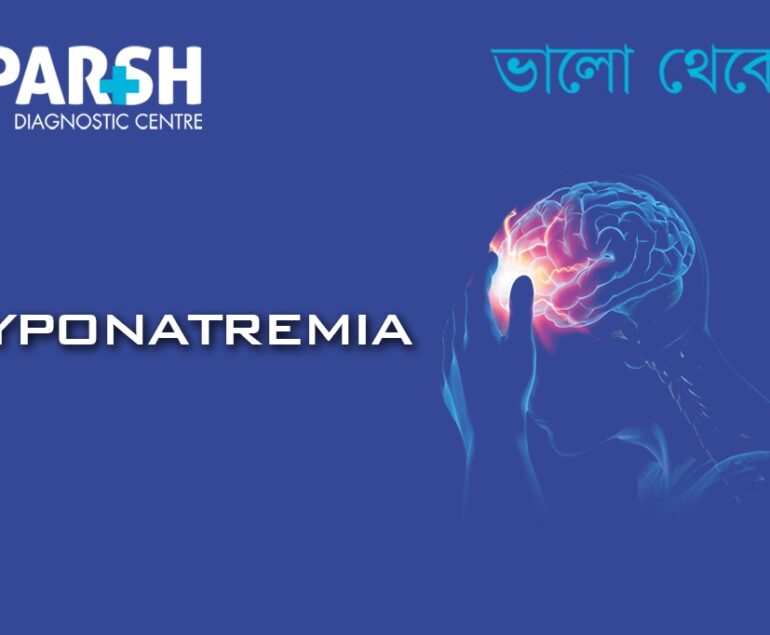Have you ever felt a strange pins-and-needles sensation or complete loss of feeling in your hands, feet, or any other part of your body? That sensation is often described as numbness or tingling, medically referred to as paresthesia. While it’s common to experience this temporarily — like when your leg “falls asleep” — persistent or recurring episodes could be a sign of an underlying medical condition.
Understanding what causes numbness or tingling can help you take the right steps toward diagnosis and treatment. Let’s explore the possible causes, diagnostic tests, and treatment options for this condition.
What Is Numbness or Tingling?
Numbness refers to a loss of sensation or feeling in a particular area of the body, whereas tingling (or pins and needles) describes a prickling or burning feeling that often accompanies numbness.
These sensations typically occur in the hands, arms, feet, or legs, but they can affect other areas depending on the underlying cause. In some cases, numbness or tingling may be harmless and temporary, while in others, it may signal a serious nerve, metabolic, or circulatory problem.
Common Causes of Numbness or Tingling
1. Nerve Compression or Entrapment
One of the most frequent causes of numbness and tingling is pressure on a nerve. This can result from conditions like:
Carpal Tunnel Syndrome – Compression of the median nerve in the wrist causes tingling in the thumb, index, and middle fingers.
Cervical or Lumbar Radiculopathy – Pinched nerves in the spine due to herniated discs or bone spurs lead to tingling in the arms or legs.
Peripheral Nerve Compression – Wearing tight clothing, sitting cross-legged for too long, or sleeping awkwardly can compress nerves temporarily.
2. Peripheral Neuropathy
This condition occurs when the peripheral nerves (outside the brain and spinal cord) are damaged.
Causes include:
Alcohol abuse
Certain medications or toxins
Symptoms often start in the feet and progress upward — a pattern known as “glove and stocking” distribution.
3. Circulatory Problems
If blood flow is restricted due to arterial narrowing or blockage, the affected limb may experience numbness or tingling.
Conditions include:
4. Nervous System Disorders
Disorders that affect the central nervous system (CNS) — the brain and spinal cord — can also produce tingling sensations:
Multiple Sclerosis (MS) – Causes demyelination of nerves, leading to numbness, weakness, and balance issues.
Stroke or Transient Ischemic Attack (TIA) – Sudden numbness on one side of the body may signal an emergency.
Brain Tumors – May press on nerves controlling sensation.
5. Injury or Trauma
A nerve injury due to a cut, fracture, or dislocation can cause permanent or temporary sensory loss. Even repetitive strain from activities like typing or cycling can irritate nerves over time.
6. Infections
Certain infections can lead to nerve inflammation or damage:
7. Metabolic and Endocrine Disorders
Hypothyroidism can cause generalized tingling due to slowed metabolism and fluid retention compressing nerves.
Electrolyte imbalances, such as low calcium or potassium, can disrupt nerve signaling.
8. Medications and Toxins
Some drugs, especially chemotherapy agents and certain antibiotics, can cause nerve damage. Exposure to heavy metals like lead, mercury, or arsenic can also lead to tingling sensations.
9. Anxiety and Hyperventilation
Stress, panic attacks, and hyperventilation can alter blood carbon dioxide levels, causing tingling in the hands, feet, and face.
10. Vitamin Deficiencies
Vitamin B12 deficiency leads to nerve degeneration and loss of sensation.
Vitamin B6 or B1 deficiency may also contribute to paresthesia.
When to See a Doctor
You should seek immediate medical attention if numbness or tingling:
Occurs suddenly after a head injury or fall
Is accompanied by weakness, confusion, slurred speech, or vision loss (possible stroke)
Affects both sides of the body symmetrically
Is associated with pain, burning, or muscle weakness
Persists for more than a few days without an obvious cause
At Sparsh Diagnostic Centre, Kolkata, our neurologists and diagnostic specialists use advanced imaging and nerve studies to pinpoint the cause accurately.
Diagnostic Tests for Numbness or Tingling
Diagnosing the cause requires a combination of clinical evaluation and diagnostic investigations.
1. Blood Tests
To check for:
Diabetes or high blood sugar (HbA1c, fasting glucose)
Thyroid function (TSH, T3, T4)
Kidney and liver function
Autoimmune markers or infection indicators
2. Nerve Conduction Study (NCS/NCV) and Electromyography (EMG)
These tests evaluate the electrical activity of muscles and nerves to detect damage, compression, or dysfunction.
3. MRI or CT Scan
MRI Brain/Spine can detect lesions, herniated discs, tumors, or multiple sclerosis.
CT scan may identify structural abnormalities or injuries.
4. Doppler Ultrasound
Used to assess blood flow in the limbs, especially if vascular issues are suspected.
5. Lumbar Puncture
In rare cases, a spinal fluid test may be done to detect infections or inflammatory diseases like multiple sclerosis.
Treatment Options for Numbness and Tingling
Treatment depends entirely on the underlying cause. Addressing the root issue often resolves the symptoms.
1. Managing Underlying Conditions
Diabetic Neuropathy: Control blood sugar through diet, medication, and insulin therapy.
Vitamin Deficiency: Vitamin B12 injections or supplements.
Hypothyroidism: Thyroid hormone replacement.
Circulatory Disorders: Blood thinners, cholesterol management, or surgery if needed.
2. Medications
Pain relievers: NSAIDs or acetaminophen for mild cases.
Anticonvulsants: Gabapentin or pregabalin for neuropathic pain.
Antidepressants: Amitriptyline or duloxetine can help with chronic nerve pain.
Topical treatments: Lidocaine patches or capsaicin cream.
3. Physical Therapy
Stretching, nerve gliding exercises, and posture correction can relieve pressure on compressed nerves and improve blood flow.
4. Lifestyle Changes
Maintain good posture while sitting or working.
Avoid prolonged pressure on any limb.
Include vitamin-rich foods like fish, eggs, leafy greens, and dairy.
Stay physically active to boost circulation and nerve health.
5. Alternative Therapies
Some individuals find relief with acupuncture, yoga, or massage therapy, which may enhance circulation and reduce nerve tension. However, these should complement—not replace—medical treatment.
Prevention Tips
Control blood sugar if diabetic.
Ensure adequate vitamin B12 intake.
Take frequent breaks during repetitive activities like typing.
Keep ergonomic setups at work.
Avoid prolonged cold exposure (especially in Raynaud’s disease).
Get regular check-ups to monitor metabolic health.
Why Choose Sparsh Diagnostic Centre?
At Sparsh Diagnostic Centre, we offer comprehensive diagnostic solutions for neurological and circulatory conditions.
Our advanced facilities include:
Detailed imaging modalities.
Nerve conduction studies (NCS) for nerve health evaluation.
Doppler ultrasound for blood flow analysis.
Expert neurologists and radiologists for accurate interpretation and diagnosis.
Early detection can prevent irreversible nerve damage and restore your quality of life.
Frequently Asked Questions (FAQ)
1. What causes numbness and tingling in hands and feet?
It may result from nerve compression, diabetes, vitamin deficiencies, poor circulation, or neurological disorders like multiple sclerosis.
2. Is tingling always serious?
Not always. Temporary tingling (like when your arm “falls asleep”) is harmless. However, persistent or progressive symptoms may indicate a medical condition that needs evaluation.
3. Can anxiety cause numbness or tingling?
Yes. Anxiety and hyperventilation can alter blood gas levels, leading to tingling sensations, particularly around the mouth, hands, and feet.
4. What vitamin deficiency causes tingling?
Vitamin B12 deficiency is the most common cause. Deficiencies in B1, B6, or folate can also affect nerve function.
5. How is peripheral neuropathy diagnosed?
Through nerve conduction studies, blood tests, and imaging (MRI/CT) to determine the extent and cause of nerve damage.
6. Can numbness be reversed?
If treated early and the cause is reversible (e.g., vitamin deficiency, nerve compression), sensation often returns to normal. Long-standing nerve damage may be permanent.
7. How can I prevent tingling in my legs or hands at night?
Avoid sleeping in awkward positions, maintain proper posture, and ensure your workspace is ergonomically designed. Stretching before bed can also help.
8. When should I worry about numbness?
Seek urgent medical attention if numbness is accompanied by weakness, dizziness, confusion, or slurred speech, as it may indicate a stroke.
Numbness or tingling is not a disease by itself but a symptom that your body uses to signal something might be wrong — whether it’s poor circulation, a pinched nerve, or a systemic condition like diabetes or vitamin deficiency.
Ignoring these sensations can lead to long-term nerve damage, especially in chronic conditions like diabetes. Therefore, it’s important to seek medical evaluation if symptoms persist, worsen, or affect your ability to function.
At Sparsh Diagnostic Centre, we combine advanced diagnostics with expert care to help you find the root cause of your symptoms and begin effective treatment.
👉 If you’re experiencing unexplained numbness or tingling, book your diagnostic consultation today at www.sparshdiagnostica.com.
#BhaloTheko
Disclaimer:
No content on this site, regardless of date, should ever be used as a substitute for direct medical advice from your doctor or other qualified clinician.

![]()






[…] Numbness or tingling […]
[…] Tingling or numbness in: […]
[…] you ever felt tingling or numbness in your ring and little fingers after leaning on your elbow? This could be more than just a […]
[…] Tingling in fingers and toes […]
[…] Tingling, numbness, or weakness in the arms or hands […]
[…] between the central nervous system and other parts of the body, often resulting in weakness, numbness, pain, or coordination problems, most commonly in the hands and […]
[…] Tingling or “pins and needles” […]
[…] Tingling or numbness […]
[…] Nerve damage (e.g., tingling or numbness in hands and feet) […]
[…] Numbness in extremities […]
[…] 1. Numbness or Pain in Legs […]
[…] Numbness or tingling […]
[…] 3. Numbness or Tingling […]
[…] 2. Numbness or Tingling […]
[…] Numbness or tingling in the legs or feet […]
[…] Persistent numbness or tingling in hands, arms, or legs […]
[…] Numbness or tingling sensation […]
[…] Numbness or tingling […]
[…] Tingling or numbness in the hands or feet: Prolonged high blood sugar can cause nerve damage (diabetic neuropathy), resulting in tingling, numbness, or pain in the extremities. […]
[…] damage (neuropathy): Nerve damage, particularly in the legs and feet, can lead to pain, numbness, and an increased risk of […]
[…] nerves, especially in the hands, feet, and face, are affected. This can result in muscle weakness, numbness, and the loss of feeling in affected […]
[…] Sensory changes (tingling or numbness) […]
[…] Numbness or Tingling: Sensations in the buttocks, thigh, or leg due to sciatic nerve irritation. […]
[…] Numbness and TinglingA common but unsettling symptom, particularly in the extremities like fingers or toes. […]
[…] the wrap if numbness, tingling, or increased pain […]
[…] known as numbness, this occurs due to nerve damage (neuropathy). You might not feel a blister, cut, or sore—making […]
[…] mistaken for a simple nerve pinch, Cubital Tunnel Syndrome can lead to pain, numbness, tingling, and muscle weakness if left untreated. With timely diagnosis and appropriate care, symptoms can be […]
[…] develops. This inflammation can interfere with communication signals, leading to pain, weakness, numbness, or even […]
[…] Numbness or tingling […]